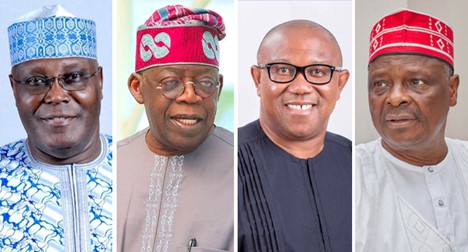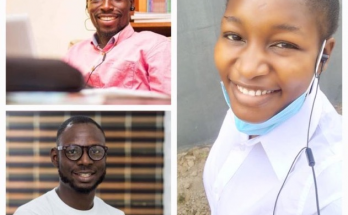By: Olajide Oladokun
Since 1999, when Nigeria returned to civilian rule permanently, there has been a quest for a true democracy, an all-inclusive democracy, one that allays the fears of the minorities, a democracy that reflects the choice of the people. Unfortunately, many years down the line, the Giant of Africa is still in the tunnel, waiting for the light. Democracy, as practised in Nigeria, is neither all-inclusive nor a reflection of the people’s choice.
Abraham Lincoln, the 16th president of the United States, defined democracy as the government of the people, by the people, and for the people. In other words, the bedrock of democracy is the people – the electorate. The people have a say in who rules them, and this is done through a periodic election conducted by an independent, unbiased and transparent electoral body. While Nigeria subscribes to the former, the latter seems to be the object of our beloved country’s fantasy, for Nigeria has not recorded an election that is free and fair in every sense of the word. It is, therefore, no gainsaying that our leaders since 1999 have been the choices of our electoral body and their cohorts, not the electorates.
The Independent National Electoral Commission (INEC), which was established to steer the affairs of elections in Nigeria, has failed, woefully at that. Over the years, INEC has upturned the election process into a selection process. The 1999 elections that brought Olusegun Obasanjo in as the president of the Federal Republic of Nigeria was the first testament to the commission’s failure. The election was poorly conducted that the US-based Carter Center concluded that “regrettably… it is not possible for us to make an accurate judgement about the outcome of the presidential election.” The US-based body was not the only confused organization; several other foreign and domestic observers also commented on the widespread irregularities and fraud in the election at all levels.
A similar card was played in the 2003 general election. The EU Observer Mission found evidence of “widespread electoral fraud” in many areas, and the body opined that “in several states, the minimum standards for democratic elections were not met.” The winners of the elections garnered overwhelming majorities in areas where polling units were never opened. This begs the question, whose choice? The people’s or INEC’s? The answer is not farfetched. To this writer, INEC has been the primary determinant of our leaders from 1999 till date, as subsequent elections further proved.
The general election of 2007 was judged ‘the worst in Nigeria’s post-independence electoral history.’ According to UKAID, Department of International Development, “Widespread malpractice occurred throughout all the stages of the election, with failures in the late delivery of voting materials, ballot box stuffing, allocation of votes where voting did not take place, falsification of votes,… moreover, the ruling party fixed the results in advance..” As they say, it takes two to tango. The ruling party did rig the election in collaboration with the ‘independent and unbiased INEC.’ The commission once again showed its inability to stop interfering with the people’s choice, so much so that the election winner, the late Umaru Yar’Adua, acknowledged he was a receiver of stolen goods.
We can go on and on to examine the timeline of elections in Nigeria, highlighting the various flaws and frauds that characterized them. Still, we’ll arrive at the same conclusion – proclaimed winners were not the choices of the people, often times than not. To buttress this claim, perhaps it’s best we examine INEC’s latest show of interference – the just concluded presidential election.
Prior to the election, INEC assured Nigerians of a free, fair and credible election. So many measures put in place to achieve this goal were highlighted by the commission, which includes the use of BVAS and other electronic devices. However, in a not-so-surprising manner, we all witnessed how the election played out; none of the technology provided was utilized. According to the joker INEC, “BVAS had some glitches, but would be utilized for the governorship election.”
Furthermore, the so-called election violated quite a number of provisions in the Electoral Act 2022. Secrecy of vote, dereliction of duty, and electronic transition of results, among many others, were provided for in the Act but were consciously and deliberately flouted by the commission, its official, and some certain individuals, yet no punishment was meted out to the perpetrators. This, to this writer, points to one salient truth – the result of the poll has been vitiated by the leadership of INEC to impose their choice on the country, as usual.
Little wonder we keep having incompetent leaders at the corridors of power every four years, each set worse than their predecessors. Respect for the rule of law has become a tale of a distant land; since the process that enthroned them was a disregard for the sacrosanct laws of the land, how do we expect them to abide by the law? If Nigeria must experience true democracy, development and progress, it begins with a free, fair and credible election that reflects Nigerians’ choice.



